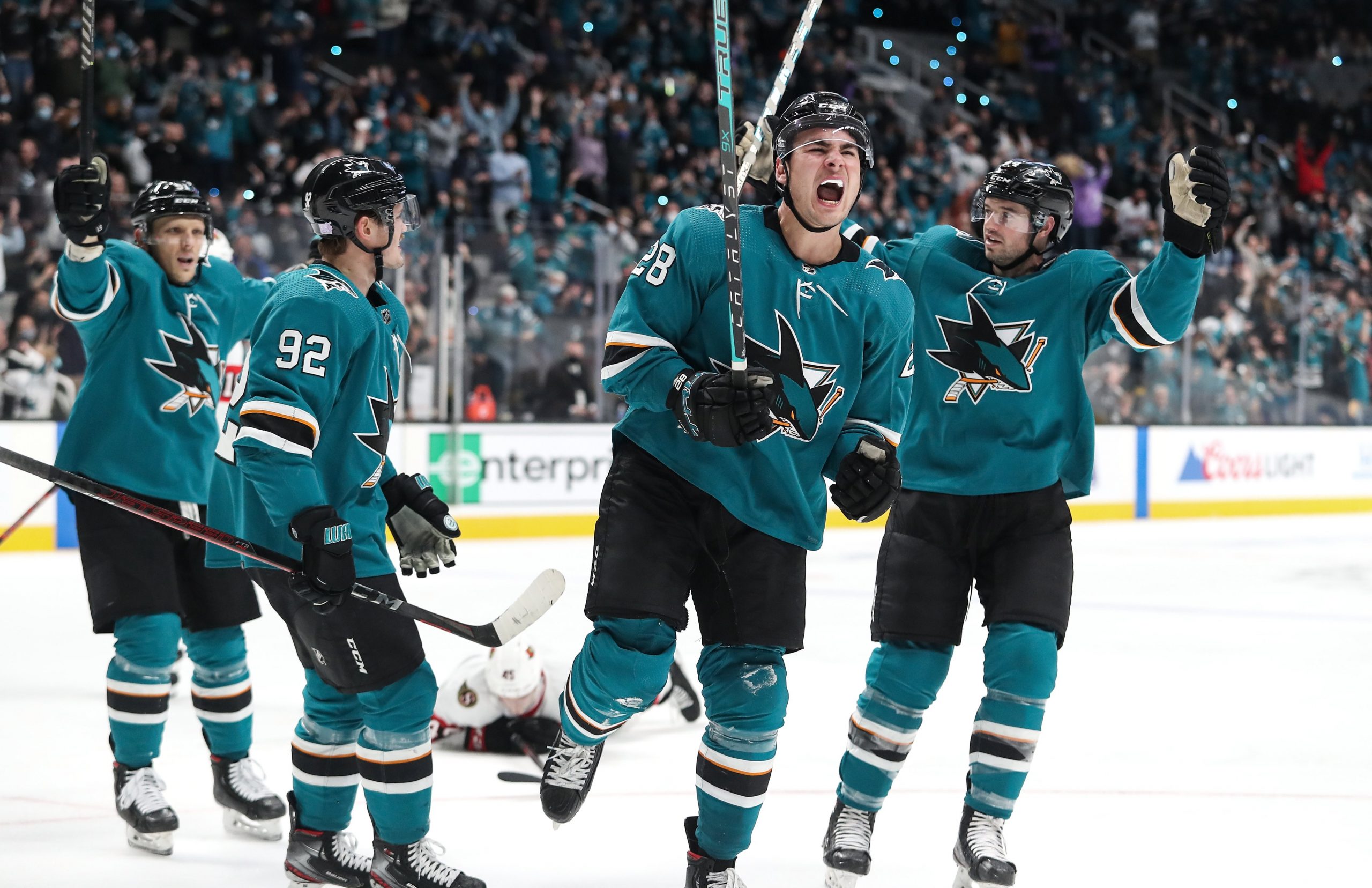When it comes to winning the Stanley Cup, there is a set of data that simply can not be ignored. When it comes to the San Jose Sharks management, it is a set of data they ignore. It is not acceptable.
This call is for the owner to fire the top members of the San Jose Sharks management team, those who set the team’s direction. It is not a call to fire those who execute their plans.
This senior group includes those leading the search for the team’s next general manager. These leaders have said they want to be better immediately. This theme has been stated by, among others, team president Jonathan Becher and recently reiterated by interim general manager Joe Will.
Will is a member of the staff evaluating general manager candidates, stating, “All we’re saying is that we want to win. We want to win here. That’s it. There could be a lot of different visions on how to do that. We want somebody that will recognize that there’s some good things going on …”
The Sharks are a team with several expensive, aging, and overpaid players on long-term deals. A team among the league’s worst teams in the past three seasons. A team with a decent, but hardly stellar, prospect pipeline. This is not a team positioned to be genuinely good anytime soon. And yet, management expects considerable improvement now. Management is willing to sacrifice long-term opportunities for very limited short-term gains. It is not acceptable.
San Jose Sharks Management Needs a Reset
Success in the NHL
In any sport, it is essential to figure out how to succeed: to figure out how champions are built. In the NHL, there is a common factor for each of the last 13 Stanley Cup winners. It is this: each champion had at least one player on the team who they drafted in the top-4 overall.
For the last 13 seasons (it will be 14 soon when the Cup is raised by either Tampa Bay Lightning or the Colorado Avalanche), this has held true. The last time it didn’t, the Cup was raised by a Detroit Red Wings team led by Pavel Datsyuk and Nicklas Lidstrom. Yes, it has been that long.
Before going further, let us interrogate the data. Is the data ‘real’ or is something else going on? Is there more that can be gleaned from this? To the first question, the point the data makes is very real. To the second question, interrogating the data sheds important additional insight. Let’s look.
Upon Further Review
We do not assume a high draft pick becomes an essential player for a championship run. How many of the 13 teams had high draft picks they drafted who were also essential players? We define an essential player as one the team absolutely needed to win the Stanley Cup. He has to be one of the team’s best players. Third-line forwards and second-pair d-men do not pass this test.
Using this screen, we lose exactly one of the 13 championship teams. As a rookie, Tyler Seguin (selected second overall) was helpful to the Boston Bruins championship, but he was not essential. So it is 12 of 13 now and will be 13 of 14 soon. The core argument holds.
There is one more cut worth taking. Among these 12 Cup winners, 11 drafted an essential player in either first or second overall. The lone exception is the St. Louis Blues, who drafted Alex Pietrangelo in the fourth spot. Several teams had multiple picks in the top four. Nine of the 13 Cup winners had both a first overall selection and at least one additional player selected in the top four overall.
Core Argument
Among the last 13 NHL champions, soon to be 14, the data distills to this:
100% had a top-4 overall draft pick they selected.
93% of NHL champions had a top-four overall draft selection selected who was an essential player for their championship team.
86% had a top-2 draft pick they selected who became an essential player for their championship team.
71% have a first overall selection and at least more selection in the top-4 who became essential players for their championship team.
In any given season, roughly one-third of the league has an essential player who they selected first or second overall. Teams representing one-third of the league win 85% of the championships. Overwhelmingly, winning a Stanley Cup requires drafting premium talent, the sort which exists in the first or second spot in the draft.
Essential Players and Championships
Just how essential are these players to their championship teams? Very essential, and they have the hardware to prove it. The players have collectively earned virtually every major piece of NHL hardware there is: Conn Smythe (playoff MVP, seven times), Norris (top defenceman, twice), Hart (most valuable player, seven times), Art Ross (most points, six times), Rocket Richard (most goals, 12 times) plus a Vezina and Jennings Trophy (top goalie and fewest goals).
For the record, these are the essential players on these championship teams. Taken first overall: Sidney Crosby, Steven Stamkos, Marc-Andre Fleury, Patrick Kane, and Alexander Ovechkin. Taken second overall, Evgeni Malkin, Drew Doughty, and Victor Hedman. Third overall, Jonathan Toews, and fourth overall, the aforementioned Pietrangelo along with Nicklas Backstrom.
Necessary, Not Sufficient
Some will argue that having high draft selections doesn’t guarantee anything, let alone a championship. This is correct. A top two draft pick is (in the parlance of logic) necessary but not sufficient.
Teams need to go through tough times (or get extremely lucky in the NHL draft lottery) for the best chance to select the elite-level talent. With this talent, teams have the opportunity to become very successful. But it is not a guarantee. High draft selections AND other good things need to happen for a championship.
This is the way professional sports it is supposed to work.
Next Generation
The path represented by recent Stanley Cup winners looks likely to continue many years into the future. A look at the next generation of Cup contenders quickly finds it dominated by teams with at least one top-2 overall selection on their roster.
This trend turns 14 this season; reaching 20 seasons appears almost inevitable.
This season’s playoff contenders are instructive. The final four teams have a plethora of top-four overall draft picks they drafted — 12 players in total. Each team has at least one first AND one second-overall selection they drafted.
Seven of the 12 players fall into the essential category (three 1st overall, two 2nd, one 3rd, one 4th). The other five range from useful to very good. Only the New York Rangers lack a top-four selection they made who is an essential player in 2022 (they have the high selections, but neither is essential yet).
In 2022, 56% of the playoff teams had a first or second overall selection which was essential to the team’s success. Among the final four, it was 75%. It isn’t simply who wins the Stanley Cup, the data also tilts hard to the Stanley Cup contenders.
Two Questions for San Jose Sharks Management
All this raises two questions for San Jose Sharks management. Unfortunately, each answer leads to the same conclusion.
Question 1: is Sharks management aware of this data? If not, they ought to be fired. After all, it is their job to figure out how to build a championship team. If they can’t find this common thread, they are bad at their job.
So assume San Jose Sharks management is aware and has communicated this data amongst themselves. This brings us to question 2: knowing this data, what have they decided to do with it? They reject the road taken by virtually every recent Cup champion. So what is the alternative plan for success? To fight a trend this powerful, it must be a pretty darn amazing plan. But there is no such plan. The San Jose Sharks management team has rejected the most obvious pathway to success without offering an alternative plan.
In practice, it means the San Jose Sharks management team will reject general manager candidates who understand the clearest path to NHL success. This is absurd – and grounds for firing San Jose Sharks management.
Alternative Plans
Given the primary trend, are alternative approaches even worth considering? Given how strongly the data skews towards teams drafting in the top-2, any alternative approach better be very special since it needs to defy very compelling odds.
In 2018-19, San Jose Sharks management did put together a viable alternative plan, one capable of defying very compelling odds. The team attempted to win a championship by playing three elite defencemen. Two of the league’s highest-scoring blueliners and a third often considered the best at shutting down opponents’ elite forwards.
San Jose Sharks management also employed a smart salary cap strategy (or good fortune). Several players on the roster had salary cap hits well below market value, with contracts set to expire at the season’s end. The Sharks spent $79 million with less than $400,000 of salary cap space left at the season’s end. The same set of players had a cap hit well over $90 million next season – three players received raises over $4 million each!
San Jose Sharks management offered a legitimate alternative plan a few seasons back. Put together a team with a group of defencemen with the potential to be among the best group ever. Couple it with a highly talented roster, in part due to several players with salary cap hits well below market value.
The team was highly competitive and a strong Cup contender. While the plan didn’t garner a championship (key injuries played a major role), the plan itself made sense. This was an alternative plan with a legitimate chance to buck the core trend.
Reality
San Jose Sharks management not only rejected the approach most likely to create a competitive team, but they continue to dig the hole deeper by denying the obvious.
Recent events are illustrative. The team recently re-signed Tomas Hertl instead of trading him. Hertl is a fine player and, in a vacuum, his contract is reasonable. But the contract didn’t happen in a vacuum. In the early years of his contract, he helps the Sharks team, but not nearly enough to make it highly competitive. If the team is good in 2030 when the deal ends, Hertl’s cap cost is a most likely drag on the team. There is no ‘win’ scenario here.
Further, the new contract makes trading Hertl more difficult. The Sharks could have gotten a lot more for him in 2022 prior to the trade deadline than in 2023 or further down the line. His trade value is greatly diminished under the new contract.
Hertl’s deal makes all sorts of sense for a ‘win now’ team. The Sharks believe they are. But they aren’t.
Even worse, Hertl’s deal creates issues for upcoming contract negotiations for the team’s best player, Timo Meier.
A few of the best moments (and photos) from the year 👏 pic.twitter.com/4MMVW58XZR
— San Jose Sharks (@SanJoseSharks) June 9, 2022
The Sharks had a chance to ‘sell high’ on both Hertl and Meier before the 2022 trade deadline and deliberately declined. The decision to retain Hertl gives Meier all the bargaining chips in his upcoming contract negotiations. The team can not rationalize signing Hertl but parting with Meier. Still, if it comes down to trading Meier, he was worth a lot more in 2022 (with an inexpensive contract and two potential playoff seasons for the acquirer) than he’ll be in 2023.
Any general manager candidate who accepts the story San Jose Sharks management is trying to sell is either not qualified for the job or lying to get it. San Jose Sharks management has decided on a course that massively defies the odds of becoming highly competitive and winning a Stanley Cup. A good plan which fails is still a good plan. The Sharks haven’t had a good plan since the end of the 2018-19 season. This is on San Jose Sharks management. Not the coaches. Not the players. It is wholly on the owner and the team’s top executives.
Compelling Case for San Jose Sharks Management?
One can go through recent Sharks moves on a case-by-case basis; trades, free agency, draft selections, re-signings, and the like. Doing this, there is no compelling case for retaining the current management team. There have been good decisions and bad ones, but the overall track record isn’t anything special.
For example, in just the past two years, the Sharks made four meaningful trades, one meaningful free agent signing, and one buyout – just for the goalie position! The net cost was roughly an early second-round selection and an NHL-quality third-pairing defenceman. There’s a ton of activity that hasn’t accomplished much meaningful. The Sharks finished the season 21st in save percentage. It is a mirage of motion.
Cleaning Up the Mess
Most telling, though, is this. The management group talks each season about their expectations for the team. In the last three seasons, they have missed expectations by a lot. What they see differs greatly from reality. They’ve been badly fooled three times in a row. That’s enough.
At this point, San Jose Sharks management is interviewing candidates for the general manager position. The owner should put a stop to it and not rely on those within Sharks management for this effort.
To borrow an incredibly ironic quote from Richard Nixon in his infamous 1952 Checkers speech:
“You wouldn’t trust the man who made the mess to clean it up. And by the same token, you can’t trust the man who was picked by the man that made the mess to clean it up.”
San Jose Sharks Management Commitment to Mediocrity
Team ownership should be okay with good plans that do not accomplish the ultimate goal. What ownership must not accept is a plan which delivers mediocrity for years to come.
San Jose Sharks management can perhaps put together a team good enough to fight for a playoff spot, something they expect to accomplish. But this gets them further from getting a championship-level team. They can succeed if the middle of the pack is the near-term and long-term goal. If this is a goal the owner finds acceptable, he needs to sell the team. After which, the new owner can fire management.
Calling for the dismissal of San Jose Sharks management is not made lightly. The team’s senior managers have long tenures with the team (decades in some cases), including many very good seasons. They’ve been part of very good decisions until recent times. They earned the benefit of the doubt. The owner knows these people and trusts them, especially important for a team whose 78-year-old owner lives in Germany.
But the landscape has changed dramatically. Management badly missed their own marks for three years running. They’ve proven they are the wrong leadership group for this decade. San Jose Sharks management is open to many paths forward, but not the one taken by virtually every single Stanley Cup winner for the last 14 seasons. That’s the lone path they refuse to consider. It is mind-boggling.
This management team has already cost the Sharks plenty and undoing it will take a long time. But worst of all, San Jose Sharks management has essentially committed to mediocrity. The San Jose Sharks management team should be fired. Now.






